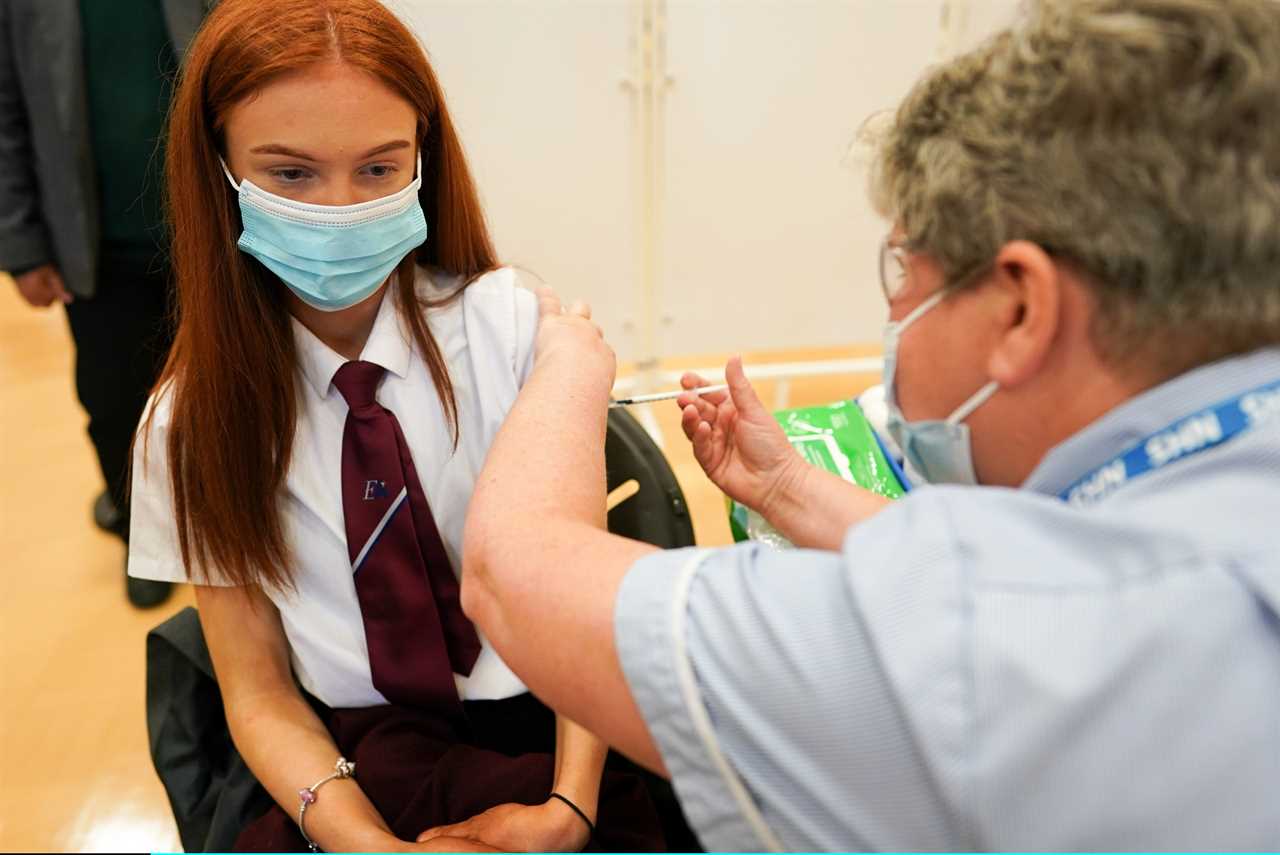SCHOOLKIDS should wait at least three months after Covid infection to get their jab to cut their risk of heart problems, officials warn.
Health chiefs want children who have been recently ill to delay vaccination to reduce the “very, very small” risk of a rare type of heart inflammation.

British data shows around nine in a million under-18s develop myocarditis after receiving a single Covid shot.
UK Health Security Agency experts hope the new measure will reduce this tiny risk further.
Around 2.6 million children aged 12 to 15 are eligible for a Covid jab – but nearly 1.1 million have had one.
It is unclear how many had it within three months of being ill.
Until now, the NHS had only asked them to delay their shot if they had been unwell with Covid in the previous 4 weeks.
Health bosses fear the new rules will delay the jab roll-out in children by several weeks, as they seek fresh permission.
NHS teams are visiting around 800 secondary schools weekly to dole out Covid shots.
Dr Mary Ramsay, Head of Immunisations at UKHSA, said: “The COVID-19 vaccines are very safe. Based on a highly precautionary approach, we are advising a longer interval between COVID infection and vaccination for those aged under 18.
‘PRECAUTIONARY APPROACH’
“This increase is based on the latest reports from the UK and other countries, which may suggest that leaving a longer interval between infection and vaccination will further reduce the already very small risk of myocarditis in younger age groups.
“We keep all advice under constant review and will revise it according to the latest data and evidence.” Joint Committee on Vaccination and Immunisation member Professor Adam Finn, from Bristol University, said the new advice should boost public confidence.
He said: “We are constantly reviewing the evidence and making adjustments to get things exactly right.
“People should be reassured by the fact that the advice changes and that means we are keeping a very close eye on things.”






